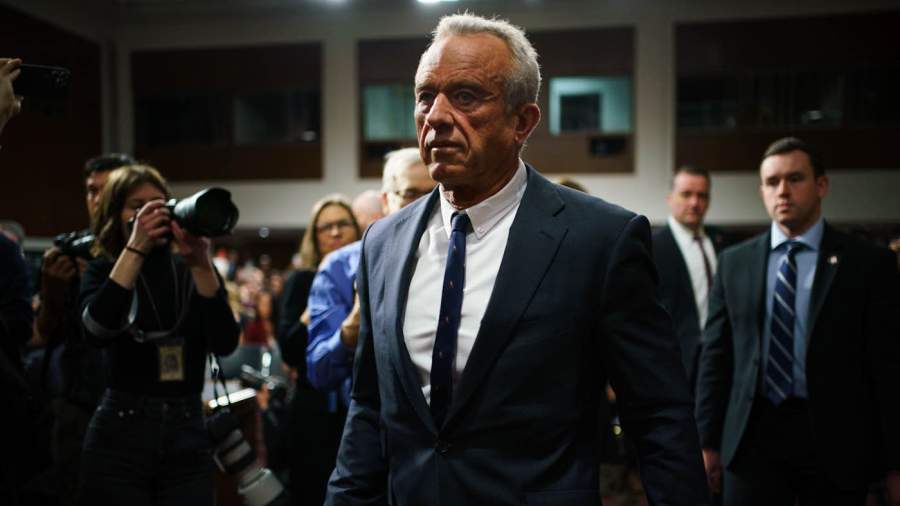
The Senate voted along party lines Wednesday to end debate on Robert F. Kennedy Jr’s nomination to lead the Department of Health and Human Services, a key step that puts him on the precipice of confirmation later this week.
The 53-47 vote came as Democrats have been forcing Republicans to use up all debate time on President Trump’s most controversial nominees.
Kennedy’s confirmation would put the longtime anti-vaccine activist in charge of the sprawling bureaucracy that oversees the nation’s health agencies. HHS oversees 13 separate agencies, and its $1.7 trillion budget accounted for more than 20 percent of the nation’s spending.
Trump’s pick of Kennedy, a longtime Democrat turned independent, was seen as a test of loyalty for Senate Republicans. Kennedy was an environmentalist who supported abortion rights before he dropped out of the presidential race and threw his support behind Trump.
Kennedy argues the rise of chronic diseases in America can be traced to ultra-processed foods, environmental toxins and chemical additives. He wants to ban fluoridated water and increase access to raw milk.
During a pair of contentious confirmation hearings, Kennedy denied he was anti-vaccine, despite refusing to disavow his promotion of a link between vaccines and autism. Instead, Kennedy painted himself as pro-vaccine safety, contending that vaccines aren’t tested enough.
Ahead of the vote, Democrats continued to raise alarms.
“Republicans are choosing to pretend like it is in any way believable that RFK Jr. won’t use his new power to do exactly the thing he has been trying to do for decades: undermine vaccines,” said Sen. Patty Murray (D-Wash.) during a press conference Tuesday.
“There are political realities, we all get that — but there is also right and wrong. There is also fact and fiction. There is also people staying healthy, and people dying pointlessly — kids dying pointlessly — from diseases that we can prevent,” Murray said.
But Kennedy has support of almost all Senate Republicans. They’ve brushed aside concerns over his views on vaccines and pro-abortion comments and praised him for being a disruptor.
The GOP has embraced Kennedy’s Make America Healthy Again agenda, including eliminating food additives and his pledge to refocus health agencies on chronic conditions instead of infectious diseases.
Two Republicans who were thought to be wavering on Kennedy’s nomination, Sens. Mitch McConnell (R-Ky.) and Lisa Murkowski (R-Alaska), both voted to advance his nomination.
McConnell also voted in favor of a procedural motion to advance Pete Hegseth’s nomination to serve as secretary of Defense, but later opposed him on the final confirmation vote. He was the lone GOP no vote Wednesday against Tulsi Gabbard as Trump’s director of national intelligence.
McConnell, a polio survivor, did not meet with Kennedy ahead of his confirmation hearings. Late last year he broadly criticized efforts to revoke approval of the polio vaccine.
Without mentioning Kennedy by name, McConnell said that “anyone seeking the Senate’s consent to serve in the incoming administration would do well to steer clear of even the appearance of association with such efforts.”
The fate of Kennedy’s nomination appeared uncertain until the Senate Finance Committee last week voted to advance him to the floor.
Sen. Bill Cassidy (R-La.) had expressed serious doubts about whether Kennedy was qualified to lead the agency, primarily over his history of promoting a false link between vaccines and autism.
But Cassidy ultimately voted with his other GOP colleagues after saying he received last-minute assurances from the Trump administration and Kennedy over vaccine safety.
“My expectation that we can have a great working relationship to make America healthy again is the basis of my support,” Cassidy said on the Senate floor last week.
Among other commitments, Cassidy said Kennedy and the Trump administration pledged they would not dismantle the federal vaccine safety system and maintain a close relationship with Congress to conduct oversight.












